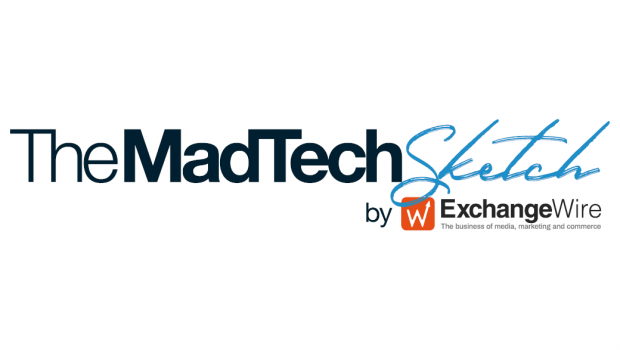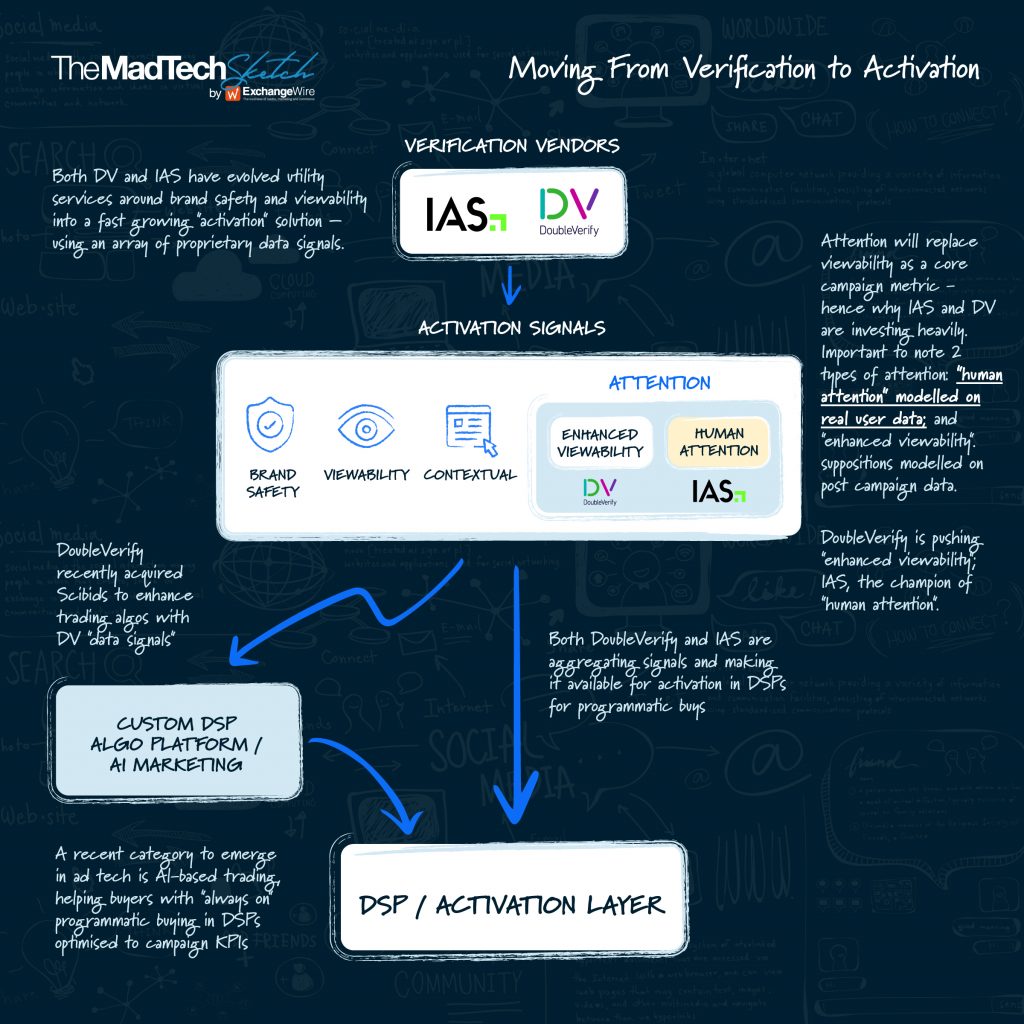DoubleVerify & IAS: Moving From Verification To Activation
by Ciaran O'Kane on 18th Aug 2023 in News

In this week’s MadTech Sketch, Ciaran O'Kane looks at how two heavyweights in the world of verification have been shifting focus towards activation and attention.
DoubleVerify (DV) recently agreed to buy Scibids for $125m. Why did an ad verification company want to buy a provider of custom algorithms for DSP trading? It’s not such a puzzling acquisition when you recognise the evolution of the ad verification category.
IAS and DV, the heavyweights of the category, have moved from verification to activation. Both have been aggregating signals around brand safety, viewability, context and attention.
In this week's MadTech sketch, we outline how the verification model has changed from ad tech measurement utility to a core part of media trading.
The importance of attention
The sketch places a big focus on attention - in terms of signal aggregation. It will be the most important signal that both companies will push into DSPs and activation layers.
Attention will ultimately replace viewability as a key KPI in campaign performance, given it can provide more accurate reflection of whether an ad is actually capturing and retaining a viewer's focus. Engagement is gaining importance.
There are two types of attention available to buyers: “enhanced viewability” (preferred by DV), modelled on post-campaign data; and “human attention” (the IAS flavour of choice), built on actual human data. The latter will be the go-to given it’s based on as-real-as-it-gets human interaction. Performance will inevitably prove that out.
Attention’s importance to both companies will only grow as we career towards CDD (Cookie Deprecation Day) at the end of September 2024. With no obvious replacement for the third-party cookie or the scaled ID, could attention fill the measurement void? It’s a bet IAS and DV need to be making.
One final note on the DV strategy: it’s highly unlikely it will build or buy a DSP. If it did go down that road, it’s inevitable it would be cut out of the big DSP. That would be bad for business, and would make it impossible to defend against the “conflict of interest” accusations, complicating commercial relationships with its biggest partners.

Ad NetworkAttentionMadTech Sketch








Follow ExchangeWire